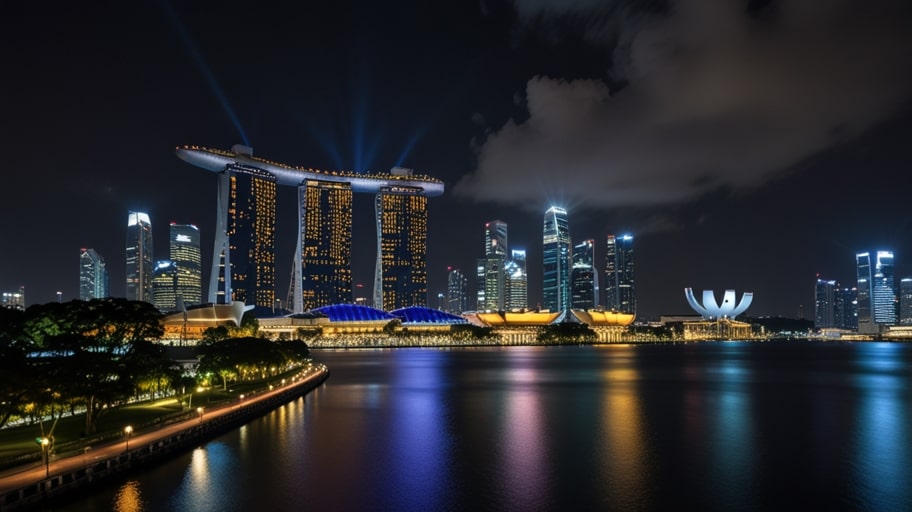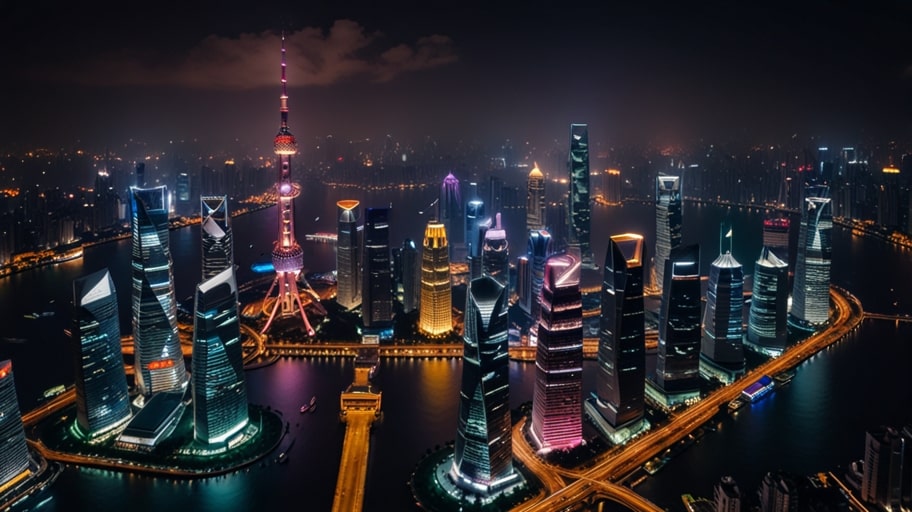With the up-and-coming tech sector of Singapore, a worldwide semiconductor company based in the Netherlands has made an announcement on the expansion of its local manufacturing hub with an investment worth $400 million.
The site will be designed to produce advanced chips for AI and 5G applications that will make the most of Singapore’s strategic position. This investment underscores Singapore’s rising attraction as a global tech powerhouse.
Furthermore, a South Korean conglomerate has made a move to offer its services and is now running a new data center in Jurong that is set up to take care of the cloud computing requirements in the city’s growth.
The move resonates with a 20 percent increase in tech investments due to a surge in the demand for digital infrastructure. Apart from being an important factor in boosting the connectivity in the region, the center will also be providing services to enterprises throughout Southeast Asia.
Nevertheless, despite efforts to optimize the sector, the recent news that the Singapore branch of a large e-commerce company mainly based in America has let go of 10 percent of its staff as part of a cost-saving plan is a clear picture of the situation.
The redundancy plan adopted by the e-commerce firm is a sign of the global retail sector facing severe challenges that come as a result of a situation where the profit margin is getting tighter and tighter. The layoff move is considered a threat to the market confidence level, although it remains resilient.
In the sector of financial technology, a Malaysian startup has won over 150 million dollars in backing to support its plan to roll out the digital payment platform through Singapore. The startup is in the blockchain technology space and has platforms with innovative features that have taken the market by storm, thus finding favor with a tech-savvy customer base.
On the one hand, the deal confirms the city as a ground for cutting-edge financial technologies, but on the other, it also emphasizes the role that the startup/organisation is/he has been playing as a company in/establishing the new technological stage of the country in the financial aspect.
Also, a Canadian renewable energy company running solar projects in Singapore has announced a 65 percent rise in profits. Like the projects, the company’s tie-ups with local power companies have significantly affected the widespread acceptance of clean energy solutions. The company’s clean energy path is a success story in itself and portrays its belief in the growth of the green energy market, with an emphasis on the Asia Pacific area.
The emphasis of trade has also been reoriented. The recent increase in the U.S. tariffs has prompted many manufacturers based in Singapore to rethink the supply chains that are required to be diversified.
Also, they have been diversifying the resources for the purpose of risk mitigation with regard to the major emerging alternative of Vietnam and Thailand. How the companies see the issue is that these adaptations have guided the distribution of goods, and the Singapore port is still a vital spot for global trade.
Singapore has become the location of a French luxury goods conglomerate that has had a very successful time in the market of high-end retail. The great sales were mostly due to the affluent target market.
The opening of their shops in Marina Bay has been the cause of much success, and they are uplifting the traditional way of retail. The firm has allocated resources to open more outlets, assuming that with time, it is very likely that wealthy consumers will keep buying from the company.
One of the local companies in Singapore is on the brink of a major success in the field of mRNA vaccine technology, and, in particular, the breakthrough is being paid great attention by global investors. Also, the combined research facility is ready to compete with global pharmaceuticals. The government’s all-paid grants have powered it. Ideally, this concept carries the promise of Singapore taking the lead in next-generation healthcare solutions.
Nevertheless, there are barriers created by the government’s regulatory mechanism that are still in place. The newly established data protection laws not only make tech companies reorganize their cybersecurity frameworks but also put compliance at the top of the list of expenses.
It is only the large enterprises that can handle the costs of adapting themselves to the electronic commercial world, while the smaller players are finding it too tough. Sadly, the ever-changing rules are for the safety of consumers, but at the same time, are making it difficult for the cloud service providers to offer cross-border services.
Contrastingly, the airline industry still has plenty of room to grow as the aerospace company from the UK’s profits have exceeded 50%, as the demand for regional flights has multiplied.
Furthermore, Singapore’s Changi Airport, a global platform for air transport, is the one responsible for the increase in the revenue of this company. One of the company’s priorities is to explore, test, and deploy sustainable aviation fuel technologies that not only coincide with the more stringent environmental mandates but also lead to the company’s competitive advantage.
Even a moment ago, a company that makes chips located in Taiwan confirmed that it is in the process of enlarging its base of operations in Singapore, whereby it will begin focusing on automotive semiconductors.
This move is done to direct the global supply chain closer to the use, especially with the focus on e-cars. Thus, at least by 2026, the company’s production is going to reach double the current levels, which will be enough for them to attack electric cars, already accounting for 20% of the total market.
However, the outlook is not so rosy. Prices are rising, and retail and manufacturing firms are no longer as profitable as they were earlier. Faced with an increase in costs, some businesses are shifting the burden to end-users, a trend that could slow down demand for their products. Singapore’s government has responded by providing financial assistance to small companies to maintain the country’s reputation as a safe place for investment.
Singapore’s start-up sector is experiencing a robust expansion, exemplified by a local AI company that has managed to secure a deal to roll out smart city solutions.
Its technology is able to save energy while tackling traffic congestion in cities, and it has even caught the attention of public authorities. From the government’s perspective, Singapore’s ability to develop new ideas by establishing strong partnerships between the public and private sectors was also reflected in this success.
A Swiss hotel conglomerate has brought the idea of constructing a luxurious resort with sustainable characteristics to Sentosa Island. It is tailored to the affluent visitors of the city-state, entrepreneurs of Singapore who have, in the meantime, turned the city into a hotspot for high-end tourism.
Components of their design, such as the Photovoltaic Panel Systems and the Rainwater Collection System, are only parts of their eco-friendly approach, which is now a basis for the whole hotel industry.
Singapore is the epitome of the word “dynamic” today and is able to maintain its global position at the forefront of the business sector, thanks to the duality of its innovative and stable environment. The city of Singapore has moved into various sectors that are now facing big decisions because of the competition in a very dynamic market.
To this end, local firms will have to grow alongside adapting to regulations and unpredictable economic changes if they hope to increase their domination in this highly competitive market.



